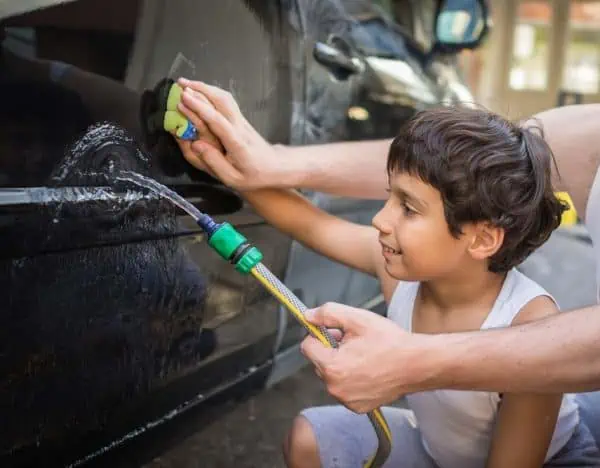
The triad
When children use foul language, lie, or start disrespecting or yelling at someone, we often wonder where they picked it up from. The answer usually is simple, they learned it from us. Studies and research suggest that children learn best through observation. At times, such negative based vicarious learning may also take place at school or neighborhood. This is where the triangle formed between teachers, community and parents surrounding the impressionable child becomes crucial for value based learning.
Vicarious learning
When parents are negligent or ineffective in instilling core values in a child, it can get contagious, causing others at school and in the neighborhood to be influenced. In addition, the lack of values and discipline may pass on from generation to generation.
Role modelling
Grooming of a child starts from home. Parents need to be aware of the values they want to instill in their children and make an action plan accordingly. Both parents must become their role models and show through their actions how to respect others. By simply using words like “thank you,” “I am sorry” and other sentences and sentiments teaches the child that it is important to be polite and respectful of others.
Random act of kindness
When parents make food for the needy or carry out a random act of kindness for someone in need, it teaches a child to have compassion, generosity and a charitable heart. It builds in them a sense of community and high level of empathy. For example, you may give cold bottles of water for people working on the street during hot summer season or simply by helping your neighbor. All such actions automatically teaches the child to have great interpersonal skills and high level of emotional intelligence.
Value of hard work and sense of responsibility
Giving children responsibilities and household chores and exposing them to different kind of work makes them learn the value and importance of being responsible. Perhaps your could teach your child to wash a car or the whole family could clean up the dishes together. In addition, exposing them to other kind of work like taking them to the farm and showing how the farmers work and making them pick the fruits. All such exposure teaches them importance of hard work and value of money. It also teaches them a sense of accountability. They could be paid pocket money and in return for doing chores and perhaps even be encouraged to take up summer jobs. As a child they could be send to a shop with some money, to buy something age appropriate.
Coping mechanism
If the children do make mistakes instead of criticism perhaps the parents could guide them to express their emotions and be guided on what decision needs to be made when faced with an upsetting situation. They could be counseled on different options and actions that may help them resolve their issue.this develops decision making skills and being able cope during stressful situation.
Owning up
Involving the child while making planning out a schedule and a rules chart makes them take ownership of the rules. They feel a sense of accountability. The parents should explain to the children that certain consequences will be faced if rules are not followed; moreover, you should praise and acknowledge them when they do well. As parents you should teach them to acknowledge their mistakes and own up to them when they make mistakes and take responsibility for their actions. If they watch you taking responsibility for your action, your kids will automatically do the same.
Exposure to diverse environment
Exposing children to various cultures and people by taking them out for traveling. While on the travel, allow them to participate in volunteer programs at pet centers, homeless centers, or some other volunteership programs. All these embed in them a sense of value for all kinds of people, cultures, and religion. Furthermore, it also teaches them to be more tolerant, respectful, emphatic towards others.
Groom kids to be part of a compassionate humankind
Storytelling, books, roleplay of puppets, and even few movies can help children learn values of all sort. Spending quality time with your family. Taking out time to listen to one another, teaching them to respect their teachers and other elders. This will help in developing a wholesome personality with strong social and emotional foundation on which they can further develop into being a better human being and hence, creating a better worlds.

